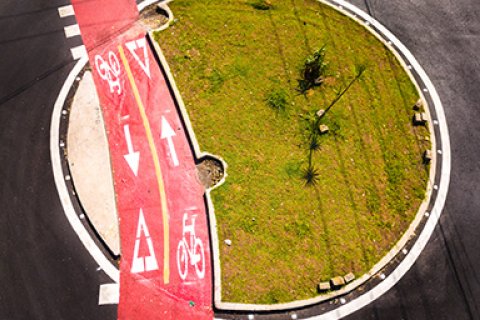Sustainable corridors?
Exploring the interface between infrastructure planning and social transformation at the metropolitan scale
Based on a case in São Paulo, Brazil, this project aims to explore the relationship between infrastructure planning and its transformative effects for sustainability emerging from local communities. It connects to the focus of the Transforming Cities hub on providing sustainable infrastructure solutions in cities like São Paulo. This is one of the hub's seed money projects.
Regional and sustainable development planning in the global South increasingly focuses on the development of corridors around linear public transit and its adjacent urban fabric, fostering technical infrastructure provision, access, and connectivity. However, it remains unclear whether and how the corridor can emerge as a critical approach that integrates planned infrastructure with local environmental and social concerns, focused on transformative development through community participation at a metropolitan scale.

São Paulo as a case
São Paulo is currently transforming a historical legacy of corridor planning that catalyses emergent forms of infrastructure planning through community-oriented strategies to preserve social housing, address environmental degradation, and enhance economic development.

An integrated approach
This project offers an integrated approach crossing urban infrastructure, social, and environmental policies, and various stakeholders including government planners and local communities. Conceptually, the proposed project exemplifies an approach that explores the effects of technical infrastructure transitions on bottom-up, community-oriented resilience building, and thus inclusive urban development. The collaboration is both inter- and transdisciplinary, seeking to extend the collaboration within and beyond Brazil as a more global partnership through a symposium to be held in São Paulo in late 2019.
Collaboration
The project is a collaboration between Dr Abigail Friendly, Dr Kei Otsuki (both Human Geography and Spatial Planning, Utrecht University), Dr Martijn Oosterbaan (Cultural Anthropology, Behavioural Sciences, Utrecht University), and Dr Kristine Stiphany (Architecture, Texas Tech University).
Symposium

Sustainable Corridors Symposium
Exploring the Interface between Infrastructure Planning and Social Transformation at the Metropolitan Scale.


